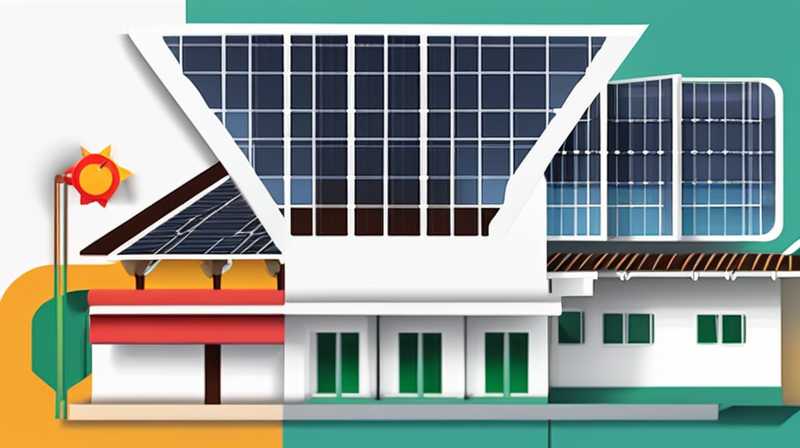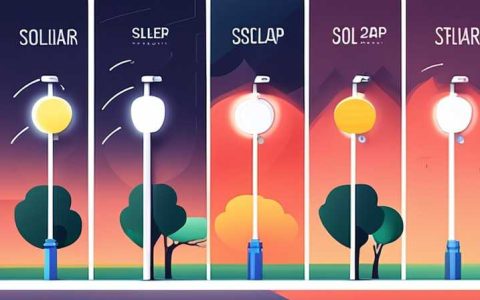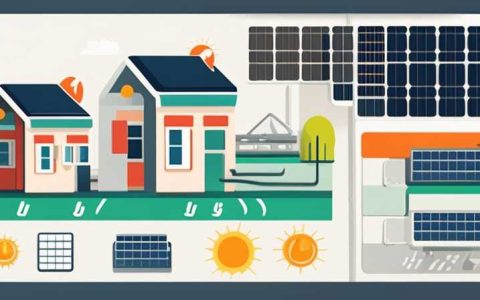
1. The prospect of visiting Vietnam for solar energy endeavors is exceedingly favorable due to various reasons. 2. Vietnam is rapidly advancing in renewable energy technologies, particularly solar power, as a part of its national development strategy. 3. Government policies favoring foreign investments create a supportive atmosphere for international collaborations. 4. The burgeoning market represents an attractive opportunity for entrepreneurs and investors, given the country’s geographical advantages such as high solar radiation levels.
Furthermore, the nation’s commitment to reducing greenhouse gas emissions aligns with global sustainability efforts, making it not only a strategic business decision but also an ethical one. Vietnam is keen on attracting foreign investment in renewable energy, particularly in solar, to meet its growing energy demands and to transition from fossil fuels. The increase in energy demand, coupled with government incentives, positions Vietnam as a promising frontier for those looking to explore solar energy opportunities.
1. VIETNAM’S RENEWABLE ENERGY LANDSCAPE
Vietnam’s position in the renewable energy sector has gained worldwide attention over the past decade. Its geographical advantages, characterized by high levels of solar irradiance, present a unique opportunity for developing solar energy projects. In fact, Vietnam receives an average of 5.4 kWh/m² per day, making it one of the optimal locations for solar energy production in Southeast Asia. The government of Vietnam recognized this potential and has made substantial investments in renewable energy technology.
The ambitious plans outlined in Vietnam’s Power Development Plan (PDP 8) aim to increase the share of renewable resources in the national energy mix significantly. These plans include a well-defined pathway to achieving 30% of all electricity from renewable sources by 2030. As a result, solar energy is at the forefront of these initiatives due to its scalability and technological advancements, making Vietnam an attractive destination for those looking to invest or develop solar energy projects.
Equally important is the legal framework that has been established to facilitate renewable energy investment. The Vietnamese government provides incentives such as feed-in tariffs, particularly aimed at promoting solar energy installations. This regulatory climate not only encourages local investors but also fosters international partnerships, encouraged by tax exemptions and leases for land development. Given the trajectory of these policies, it’s evident that Vietnam seeks to position itself as a leader in clean energy within the region.
2. INVESTMENT OPPORTUNITIES IN SOLAR ENERGY
The investment landscape for solar energy in Vietnam is undeniably promising for multiple reasons. The increasing domestic demand for electricity translates to a growing market for solar solutions. As the economy continues to grow, driven by industrialization and urbanization, the demand for energy is expected to rise dramatically. This surge creates a conducive environment for businesses that can provide alternative and sustainable energy solutions. Consequently, investors looking for lucrative opportunities can find a variety of projects ranging from large-scale solar farms to decentralized solar solutions for homes and businesses.
Additionally, international investors often find favorable conditions when operating in Vietnam. The Vietnamese government has initiated numerous policies targeting foreign investments, accompanied by lower operational costs, particularly in the renewable energy sector. Companies can benefit from reduced tariffs, streamlined processes for permits, and sector-specific incentives. Vietnam’s strategic location in Southeast Asia also allows easy access to other regional markets, an additional advantage for investors focusing not just on Vietnam but also on exporting energy to neighboring countries.
Understanding the local market is essential for any potential investors. Engaging with local stakeholders not only aids in navigating the regulatory landscape but also provides insights into market dynamics and consumer behavior. Collaborative projects often draw on local expertise to adapt technologies to meet specific local needs. This will not only boost the effectiveness of solar energy initiatives but also cement partnerships that can lead to further opportunities in the future.
3. TECHNOLOGICAL ADVANCEMENTS IN SOLAR ENERGY
Technological innovation plays a paramount role in enhancing the efficiency and accessibility of solar energy solutions. In Vietnam, the recent advancements in solar panel technologies and energy storage solutions have transformed how solar energy is harnessed and utilized. The introduction of cutting-edge photovoltaic technologies has significantly increased the energy output per square meter, making solar installations more feasible and attractive. Some of the recent innovations include bifacial solar panels, which capture sunlight from both sides, and PERC (Passivated Emitter Rear Cell) technologies, which improve energy conversion rates.
In addition, energy storage solutions have become increasingly vital in addressing the intermittent nature of solar energy. The integration of advanced battery technologies, such as lithium-ion batteries, has made it possible to store excess energy generated during peak sunlight hours for later use. This is particularly beneficial for maintaining consistent energy supply, regardless of weather conditions or time of day. The deployment of energy storage systems ensures that solar energy can be utilized more effectively, thereby enhancing the overall stability of the energy grid.
Moreover, the evolving landscape of smart grid technologies and IoT applications has paved the way for more efficient energy management systems. By utilizing real-time data analytics, energy production and consumption can be optimized, resulting in significant cost savings and improved renewable energy integration into existing infrastructures. For those interested in solar energy, keeping abreast of these technological advancements will not only inform investment decisions but also foster innovative approaches to project implementation.
4. CHALLENGES IN THE SOLAR ENERGY SECTOR
Despite the vast opportunities onboard, several challenges persist within the Vietnamese solar energy landscape. Navigating the regulatory environment can be complex for foreign investors. While government policies are generally favorable, there are still bureaucratic hurdles that can impede project development. Investors often encounter delays in securing necessary permits, especially for large-scale installations, which can affect project timelines and financial forecasts. Additionally, changes in regulatory frameworks may pose challenges for long-term planning and investment strategies.
Market volatility is another concern for potential investors. The solar energy market in Vietnam is still in its nascent stages, and fluctuations in demand and supply can create uncertainty. As with any emerging market, factors such as governmental policies, economic conditions, and technological advancements can shift rapidly. Being alert to these changes is necessary for making informed decisions and minimizing risks associated with investment in the sector.
Finally, competition remains fierce as more players enter the market vying for a share of the pie. The influx of investment will lead to increased competition, not only in bidding for projects but also in securing contracts with local stakeholders. Consequently, investors should not only focus on providing innovative and cost-effective solutions but also prioritize establishing strong local partnerships. Creating a reputation for reliability and quality can distinguish a business in an increasingly competitive environment.
5. SOCIO-ENVIRONMENTAL BENEFITS OF SOLAR ENERGY
The benefits of solar energy extend far beyond economic growth and investment opportunities; they also encompass significant socio-environmental impacts. Adopting solar energy contributes to the reduction of greenhouse gas emissions, thereby aiding Vietnam in its commitment to addressing climate change. Transitioning from fossil fuels to renewable energy sources helps mitigate the harmful environmental impacts associated with traditional energy production, making it a crucial step toward sustainability.
Moreover, the deployment of solar energy projects can have positive social implications. Access to renewable energy can significantly uplift rural communities that traditionally lack reliable electricity. By implementing decentralized solar solutions, rural households can benefit from improved access to electricity, thereby enhancing quality of life, supporting small businesses, and facilitating educational pursuits. This democratization of energy access paves the way for inclusive economic development and can empower communities to become self-sufficient.
Finally, integrating solar energy projects can stimulate job creation and skill development. The growth of the solar industry creates a demand for skilled labor, leading to training programs and educational initiatives that equip individuals with the necessary skills to thrive in the green economy. Employment opportunities span a wide range of roles, from solar panel installation to maintenance and system management, leading to an overall uplift in job prospects in the renewable sector.
FREQUENTLY ASKED QUESTIONS
WHAT SUPPORT DOES THE VIETNAMESE GOVERNMENT PROVIDE FOR SOLAR ENERGY INVESTMENTS?
The Vietnamese government has taken considerable measures to support solar energy investments, aiming to diversify the energy mix and enhance sustainability. Fundamental to this support is the feed-in tariff (FiT) system, which guarantees predetermined rates for energy supplied to the grid. This framework provides a financial incentive to attract domestic and foreign investments. The government also offers tax exemptions, investment incentives, and streamlined processes for obtaining permits, creating an environment conducive to project development.
Furthermore, various projects are underway to improve energy infrastructure and facilitate the growth of renewable sources. Government agencies are actively collaborating with international organizations to increase investment flows, provide technical assistance, and ensure compliance with international standards. As a result, the landscape is increasingly favorable for entrepreneurial ventures that align with the nation’s sustainability goals.
HOW CAN FOREIGN INVESTORS NAVIGATE THE REGULATORY ENVIRONMENT?
Navigating Vietnam’s regulatory environment as a foreign investor requires an understanding of local laws, practices, and cultural nuances. To ensure compliance, it’s advantageous to engage local legal and financial experts familiar with the renewable energy sector. Establishing strong relationships with local stakeholders and government entities can help expedite processes and clarify potential issues. Participation in local conferences and industry events can also provide valuable insights into prevailing attitudes and expected due diligence from foreign businesses.
Additionally, continuously monitoring changes in regulations is crucial. Vietnam’s energy and investment policies may evolve in targeting specific areas for development, and staying informed allows investors to adapt quickly to new requirements. Participating in collaborations and partnerships with local firms can also serve as a grounding strategy, allowing access to relevant information networks and increasing chances for successful project execution.
WHAT ARE THE LONG-TERM PROSPECTS FOR SOLAR ENERGY IN VIETNAM?
The long-term prospects for solar energy in Vietnam look exceedingly bright. As the country continues to strive toward becoming a leading player in renewable energy, the commitment to enhancing the solar infrastructure is steadfast. Government policies are designed not only to attract investments but also to improve energy security by integrating more renewable sources into the national grid. The acceleration of technological advancements, particularly in energy storage and smart grid solutions, will further bolster the capacity and reliability of solar energy.
Moreover, the international community’s focus on combating climate change aligns Vietnam’s goals well with global sustainability trends. There is an increasing expectation for countries to participate actively in renewable energy transitions, and Vietnam is well-positioned to capitalize on this momentum. As consumer awareness of climate change rises, the demand for sustainable energy solutions is likely to increase, ensuring that Vietnam’s solar energy sector becomes a cornerstone of its economic future.
The prospect of engaging with solar energy initiatives in Vietnam presents a multitude of benefits and challenges, requiring deliberate navigation for both local and foreign stakeholders. With clear government backing, diverse investment opportunities, and a commitment to sustainability, it is evident that the nation is charting a path toward becoming a leading hub for renewable energy in Southeast Asia. Translating the challenges into opportunities and fostering partnerships will be critical in securing a significant foothold in this evolving landscape.
Addressing the energy demands of a growing population while committing to environmentally friendly solutions is not simply a responsibility but an opportunity. As Vietnam continues to invest in solar energy, which promises to enhance the quality of life for its citizens and establish a sustainable economic model, stakeholders must consider the broader socio-environmental ramifications of their actions. The future of solar energy in Vietnam is promising, and active participation in this market aligns with global objectives for sustainability and climate change mitigation.
Original article by NenPower, If reposted, please credit the source: https://nenpower.com/blog/how-about-going-to-vietnam-to-do-solar-energy/











